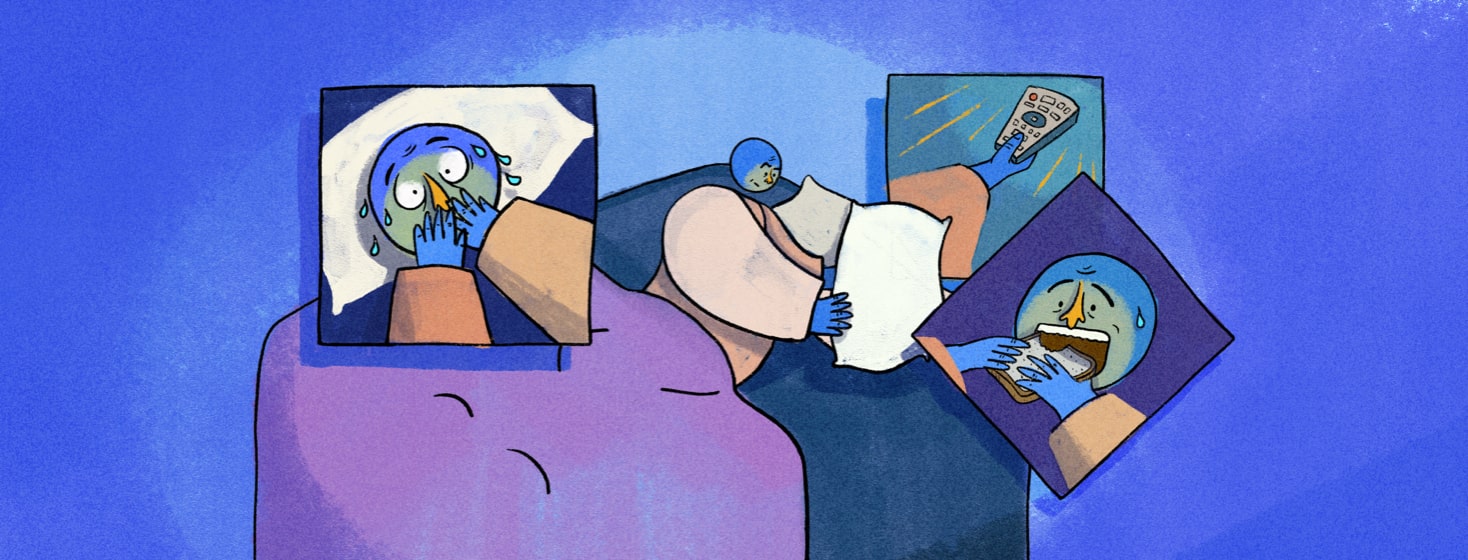Bile Reflux and Sleep Disturbances
In 2014, after several months of terrible symptoms, testing, and doctor consultations, I had my gallbladder removed. It wasn’t working as it was supposed to, and it was making me really really sick. I was so grateful after surgery to find relief, but I didn’t know then that surgery would change my health, my sleep, and what I’m able to eat forever.
A new diagnosis causing sleep disturbances – reflux
About a year after surgery, I began having some complications - upper abdominal pain, heartburn, nausea, burning acid reflux. Additionally, I was vomiting a greenish-yellow substance called bile multiple times during the night, to be specific. These symptoms can lead to several diagnoses, and it took time (and more testing) for my doctor to conclude that I was struggling with bile reflux gastritis.
Bile is a necessary digestive liquid produced in the liver and stored in the gallbladder. The removal of my gallbladder had created a weakness in my esophageal sphincter. This was enabling the bile to back up into my stomach and esophagus, irritating the esophageal tissue and causing painful inflammation.
It turns out that people who have had their gallbladders removed have significantly more bile reflux than those who still have a functioning gallbladder - something I’d never have known if I didn’t experience it.
Medication, therapies, and treatment for bile reflux gastritis
Unfortunately, the only “cure” for this disease is major surgery, one that I wasn’t jumping at having done immediately. There are medications that can help quiet the symptoms, however, the management is challenging and inconsistent.
I began a treatment - a daily pill called Ursodiol, which reduces the pain and frequency of symptoms associated with bile reflux. This means that instead of dealing with this problem and these challenges daily, it's maybe once or twice a week. I was grateful for any relief, even if only partial, but I've had to learn to live with these symptoms when they rear their head over the last many years.
Nighttime reflux impacts my sleep
My symptoms are worse at night, or overnight, once my body has been horizontal for a little while. I often wake up coughing, feeling like I’m going to vomit, or experiencing a painful burning sensation in my throat.
Comfort measures
I have some tried and true comfort measures that I implement during these episodes:
- Eat a piece of bread, something bland and soft to try to absorb the acid.
- Sit upright in bed, propped by some pillows.
- Watch an episode of a TV show.
- Try to go back to sleep but don't lay completely flat.
- Keep my head raised a bit.
When this happens, it’s several hours awake and struggling with discomfort before I’m able to fall back asleep, and that’s only if and when my insomnia has stopped its own war against my body.
The next day with bile reflux comorbidity
The mornings after these attacks, I feel totally defeated. My body feels weak and exhausted. I feel like I need to sleep for several more hours in order to make up in part for the physical energy that was depleted and for the hours of sleep that I missed, or the ones that were interrupted by acidic coughing fits time and time again.
I live with several chronic health conditions, but this one undoubtedly has the most direct and disruptive impact on my sleep. Insomnia is a daily struggle, without adding in comorbidities. Bile reflux gastritis absolutely makes my life more exhausting, more difficult, and more frustrating.
Are you managing additional conditions that impact your insomnia? Share your experience in this forum!

Join the conversation